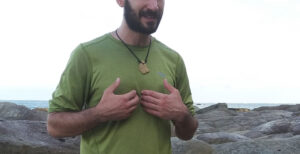This text is a response to a case in which a guy mislead many women and offended them sexually. When his friends found out and confronted him with this – he went and committed suicide.
His actions were harmful, stemming from wounds that arose from his encounters with the environment in which he grew up and was shaped, but he himself was a human being like all of us – doing what seemed to be right from his perspective, however distorted the result was.
What can be done?
Ignoring violence only perpetuates it, and failing to recognize the humanity of perpetrators leads to more harm – actually, it’s what allowed violence in the first place. Instead of seeing them solely as criminals, we must acknowledge that every person is a complex being and a member of our human family. Only by doing so can we begin to prevent further harm and promote healing.
It sounds like a catch-22… so what do we really do?
Imagine yourself as a perpetrator. What conditions would allow you to let down your defenses and ask for help? Now consider a small child who broke something valuable in the house and is afraid to confess. What would allow them to apologize?
(Take a moment with this question…)
My take on the subject
In my opinion, it’s all about attitude.
We do need to act in order to prevent further harm to others, likely by distancing the harmful person from those who may be harmed. At the same time, we should respect the individual that’s behind the confused and harmful personality, and support their recovery. To do that, we need to explain to them that as long as the harmful mechanism exists within them – part of their freedom will be taken to prevent further harm.
In order to allow for healing to occur, rather than seeing them as “bad” people, we need to view them as human beings, just like you and me, in need help and support. This shift in mindset is key to allow healing to happen.
The process of healing begins with recognizing the good intentions of the person who caused harm and understanding the mechanisms that led their good intentions astray. It is important to help them comprehend the harm they caused and take responsibility for it by seeing the situation from the perspective of those who were harmed.
Next, we should help them find healthier ways to achieve their goals and guide them in practicing these new behaviors. This way, they can see for themselves that their new approach brings better results than their previous harmful actions.
Imagine how much better the world would be if we could all be ourselves without fear of condemnation or judgment, but instead be encouraged to take responsibility and work towards self-improvement.



